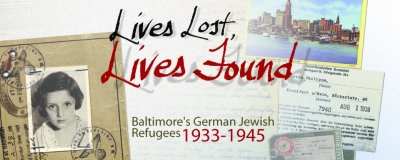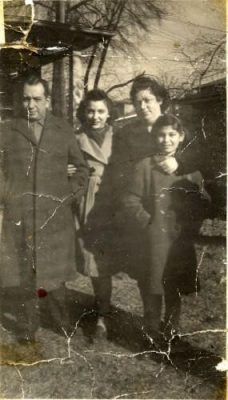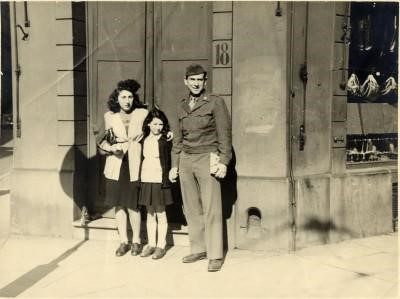Sharing and Learning Group

with Baltimore Holocaust Survivors and Descendants
A blog post by the Director of Learning and Visitor Engagement Ilene Dackman-Alon. To read more posts by Ilene click HERE.
This past Sunday, JMM education staff presented one of its education archival programs to the Baltimore Holocaust Survivors and Descendants (BHSD) Group at the Park Heights JCC. This special group includes Holocaust survivors along with their children and grandchildren that meet once a month for programming with guest speakers, movies and social gatherings to honor and commemorate the memory of the Holocaust. The group is sponsored by the Baltimore Jewish Council.
The timing of the program with the Baltimore Holocaust Survivors and Descendants Group seemed so perfect as just last week, the Maryland State Department of Education (MSDE) announced that they have plans to enhance and expand the teaching of Holocaust education in public schools. These planned changes include studying the Holocaust and the roots of anti-Semitism long and the study of current events of contemporary genocide. The changes also include providing teachers with more opportunities to learn from professionals in order to be better prepared to teach about the Holocaust with confidence.
The changes are in response to concerns about the state’s education requirements that were raised earlier this year by members of the General Assembly and the Baltimore Jewish Council. Teaching about the Holocaust is critical especially at a time where there is an increase of incidents of hate crimes and intolerance throughout the world. In addition, the 2018 study by the Conference on Jewish Material Claims Against Germany stated, “Four out of ten millennials know little about the Holocaust”, makes our work even more important. Our work with school children is critical and we must give students opportunities to understand how important it is to learn history in order to understand and navigate the world today.
Our education staff facilitated with the group our popular education archival program that was created in connection to the exhibition, Lives Lost, Lives Found: Baltimore’s German Jewish Refugees 1933-1945. The exhibition explores the experiences of 3,000 German Jewish refugees who found a “safe haven” in Baltimore in the 1930’s and 1940’s. The exhibit provided wonderful educational opportunities to teach students of all backgrounds about the Holocaust from a different perspective using first-hand testimony and artifacts from individuals who left Germany during an intense period of upheaval and discrimination.

To accompany the exhibition, the education department developed a stand-alone curriculum incorporating the photographs from the exhibition which we have used to facilitate Holocaust-related programs. Students examine poster-sized reproductions of the photographs in groups and answer questions about the photo. Students are encouraged to use critical thinking and teamwork skills to present their findings to the class. As a final activity, students attempt to create a timeline of the photos which gives them the opportunity to think about how the photographs tell a story with a beginning, middle, and end. The curriculum and photos can be downloaded from the education section on our website: http://www.jewishmuseummd.org/educational-programs.

Courtesy of Hera Griffel Baitch, L2003.75.14
The Baltimore Holocaust Survivors and Descendants (BHSD) Group did a wonderful job with the archival activity and I was reminded of the fact that we are all lifelong learners. The group asked many of the same questions during the activity as the students in the classroom. As I was listening to the banter among the smaller working groups, I heard people sharing their own stories and experiences of war and of their new lives in Baltimore. I thought to myself how blessed and lucky I was to learn these new stories and forge new connections to these wonderful people.

Courtesy of Jeffrey Knisbacher, L2003.64.3
One of the most powerful experiences in Holocaust education is to hear first-person testimony from those people who survived the war years. Holocaust survivors have made an impact on so many students in the classroom over the years. Their presence, physically, emotionally and intellectually have shaped Holocaust education.
At JMM, we believe our work with school children is critical and we must give students opportunities to understand how important it is to learn history in order to understand and navigate the world today. Holocaust education has the potential to encourage young people to think about how to improve humanity through individual and group actions in their daily lives. JMM will continue its work with schools and teachers in providing more learning opportunities and resources in Holocaust education.
